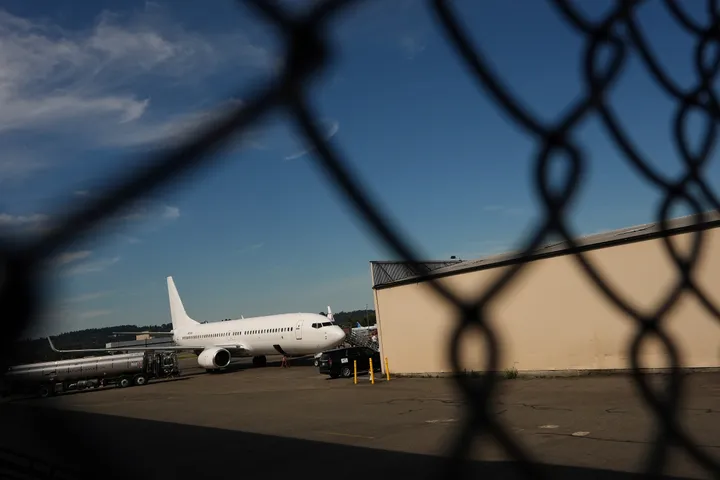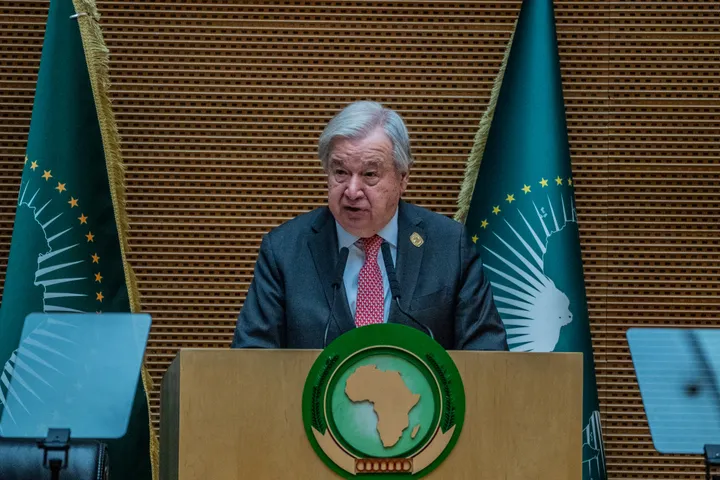Nigeria's President Bola Tinubu said on Wednesday that economic reforms would continue despite increasing hardships that have fuelled public anger, and promised to send an executive bill to parliament soon to set a new minimum wage.
Tinubu, who came to power a year ago, removed a decades-old petrol subsidy that kept prices artificially low and devalued the currency, sending inflation soaring to 33.69% in April, its highest level in nearly three decades, and eroding incomes.
In a television broadcast to mark Democracy Day, Tinubu acknowledged the hardships caused by the reforms, which also include higher interest rates and the partial removal of electricity subsidies, but he said this would create a stronger foundation for future growth.
"Our economy has been in desperate need of reform for decades. It has been unbalanced because it was built on the flawed foundation of over-reliance on revenues from the exploitation of oil," Tinubu said.
Cost-of-living crisis
"As we continue to reform the economy, I shall always listen to the people and will never turn my back on you."
Nigeria is grappling with the worst cost-of-living crisis in decades, and labour unions last week suspended a strike called to pressure the government to agree to a new monthly minimum wage.
The government has offered to double the minimum wage to 62,000 naira ($41.89) a month against labour demands of 250,000 naira, and Tinubu said his government had negotiated in good faith. The last minimum wage was set in 2019.
"We shall soon send an executive bill to the National Assembly to enshrine what has been agreed upon as part of our law for the next five years or less," Tinubu said.
He did not say whether the bill would contain the government minimum wage proposal or a new figure.
Labour union leaders have said they would wait to hear back from Tinubu before deciding on next steps. ($1 = 1,480.0000 naira)
➤ Click here to follow our WhatsApp channel for more stories.























